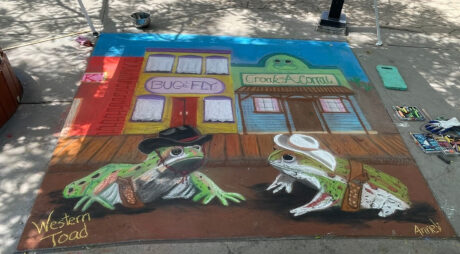Murray: Civic work builds the foundations for individual heroes

Photo supplied, Weber State University
Leah MurrayThousands of years ago, the Greeks revered heroes — you have heard of some of them: Odysseus, Achilles, Hector. Homer told stories of heroic arete, the quintessential quality of the warrior-hero: to always be the best, to always excel. Heroic arete is individual achievement.
When you read “The Iliad,” you do not learn about soldiers on that beach, you learn about the heroes, the individuals at the top. It is from this Greek tradition that we get the word marathon. In 490 B.C., the Greeks were battling the Persians and Pheidippides ran 26 miles from Athens to Sparta to get help. As the story goes, he runs as fast as he can, spits out his message and drops dead on the spot.
On May 20, thousands of people descended upon Ogden to recreate that epic run. More than 6,000 people showed up to run either the full marathon, like Riley Cook who won that day, or some shorter leg of it, as I did, completing the half-marathon.
My friend and I were amazed as Riley Cook flew by us. When you do the half-marathon as slowly as we did, you get lapped by the really good marathon runners. We laughed when we asked how fast would you have to be going to rate having a truck lead you in — the answer is five minutes and 27 seconds per mile, which Riley did with an upset stomach, apparently. I was amazed at his heroic arete; he is an individual about whom we talk. He spent so much time training to get his body in the kind of shape you need to be in to run that fast every mile for 26 miles.
Although I do seriously question the tradition of following in Pheidippides’ footsteps, I was inspired by his achievement and I told another friend that I would do the next 20 Ogden half-marathons. I was proud of my own much slower accomplishment and felt very much that I had done a really hard thing. I had achieved individual greatness. Well, maybe not greatness, but they did give me a medal. But you know what was even more magical than the fact that I could complete a half marathon? The city of Ogden organizing the Ogden Marathon.
First, they closed the canyon and a number of through streets resulting in the entire city having to take a break from its normal routine. You could not drive anywhere without running into roadblocks. If you lived up in the valley, you could not possibly get into the city without driving around a mountain, adding a lot of minutes to your trip.
Second, they had to get 6,000 people from downtown Ogden to starting lines that went up and down the canyon and the valley. People like Riley started way up near Causey, my friend and I started at Eden Park, and other people started at The Oaks. And they did this at 5 a.m., which is not a time that most people are at their cognitive peak. Can you imagine herding all those humans onto dozens of school buses?
Third, they had 16 aid stations. I went past half of them. Each one had people handing out water or gatorade, music playing, people cheering. One had bacon and pancakes, although I could not imagine eating that at mile 10. At the finish line, there were people handing out cookies and water.
All of that was put on by my city, which is evidence of another Greek concept: civic arete. Pericles, a prominent Greek statesman, put forth the idea in his funeral oration that true heroism is not actually individual achievement, but achievements for the city. Those nameless soldiers on the beach at Troy had civic arete. You will never know their names, Brad Pitt will never play them in a movie, but they achieved greatness for their city. Ogden’s volunteers will probably never run a marathon at five minutes and 27 seconds per mile, but they achieved greatness by cheering, driving buses and making everyone feel welcome. Ogden’s citizens achieved greatness by embracing the disruption a major event like this puts on a city.
Sometimes America values individualism, heroic arete, more than anything else. It is evident in our sports worship and our celebrity worship. We love individuals who achieve. We would do well to also value civic arete, when people whose names you will never know make the difference on behalf of their communities. Please note that both these virtues are valuable, but sometimes I think Americans lean too far into individualism at the expense of their communities. The individual achievements on May 20 were amazing but they would not have been possible without the work of the city that made the event possible. Heroic arete is only possible upon the foundation of civic arete.
Leah Murray is a Brady Distinguished Presidential Professor of Political Science and the academic director of the Olene S. Walker Institute of Politics & Public Service at Weber State University.



